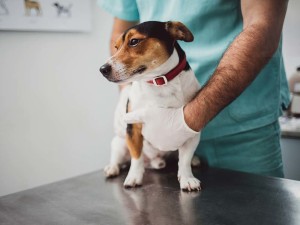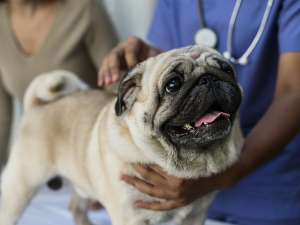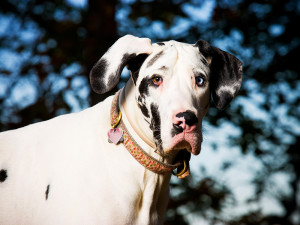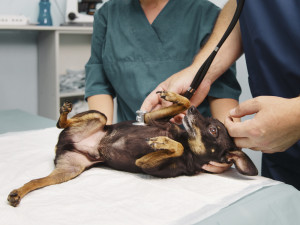What Causes Mucus in Dog Poop?
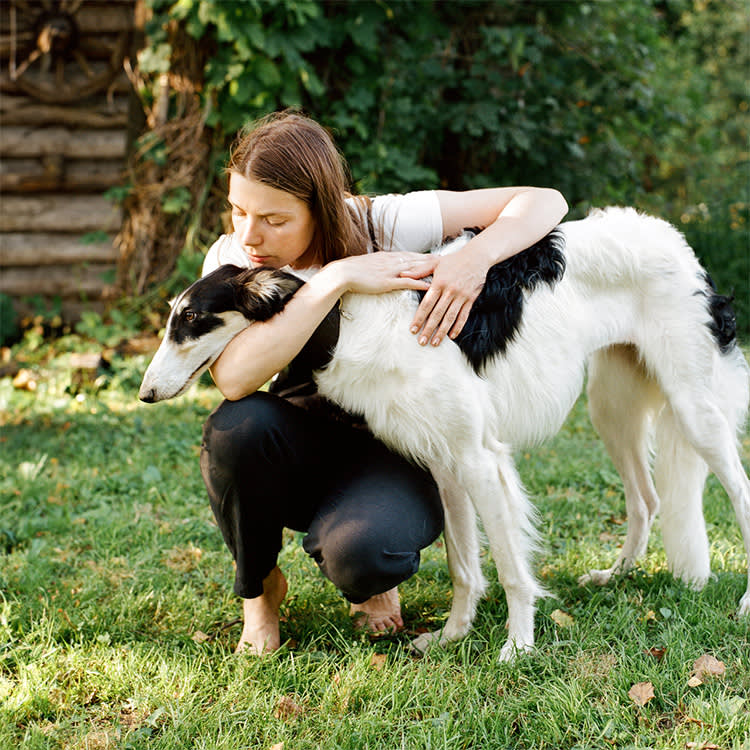
share article

Your pet wants you to read our newsletter. (Then give them a treat.)
In This Article:
Causes of Mucus in Dog Poopopens in a new tab Can Mucus in Dog Poop Be Normal? opens in a new tabWhat Does Mucus in Dog Poop Look Like?opens in a new tab What Symptoms Are Associated With Mucus in Dog Poop? opens in a new tabTreatment for Mucus in Dog Poopopens in a new tab
Mucus in dog poop is a normal occurrence in small amounts, helping lubricate the intestines and facilitate smooth passing of stool. But excessive mucus can indicate underlying issues like colitis, an inflammation of the colon caused by various factors. Other causes include dietary changes, parasites, stress, and allergies. If you notice excessive mucus or changes in your dog’s stool, consult a veterinarian for diagnosis and proper treatment.
What is the role of mucus in a dog’s digestive system?
What does mucus in stool mean in dogs, and what does it do? A dog’s gastrointestinal tract continuously produces, secretes, and absorbs mucus. Gastrointestinal mucus is made of mostly water (74 to 95 percent) but also contains proteins, fats, and enzymes. The mucus in the GI tract helps to keep digestive contents lubricated so they pass through the intestines easily. Mucus also creates a protective barrier that shields the intestinal lining from harmful substances, including some bacteria. In short, mucus is a normal part of dog poopopens in a new tab.
Causes of mucus in dog stool
Occasionally seeing visible mucus when you pick up your dog’s poopopens in a new tab is no cause for concern, but excessive mucus in your dog’s poop can indicate digestive issues. Excess mucus is typically a sign of colitis, which is inflammation of the colon. Causes of mucus in dog poop include:
Diet change
When switching foods, dog parents should plan to carry out any diet changes over a week or two. A sudden diet change can trigger inflammation in a dog's GI tract, leading to increased mucus production.
Food intolerance
Dogs can develop food allergies or food intolerance at any age. True food allergies develop when specific proteins in the food trigger an immune response. Food allergies in dogs typically manifests as skin issues — red, itchy, flaky skin. Food intolerance tends to manifest as a gastrointestinal issue — diarrhea, flatulence, and increased mucus in the stool.
Dietary indiscretion
Dogs can get “garbage gut” from eating, well, garbage. Eating trash and spoiled food may harbor bacteria that can cause mild to severe enteritis (inflammation of the intestines). Symptoms include vomiting, diarrhea (with mucus), nausea, and abdominal discomfort.
Inflammatory bowel disease
Inflammatory bowel diseaseopens in a new tab (IBD) in dogs causes chronic inflammation of the GI tract and can lead to vomiting, diarrhea, weight loss, and excess mucus in the stool.
Intestinal parasites
Infestation of intestinal parasitesopens in a new tab like Giardia and roundworms can cause diarrhea with lots of mucus.
Dysbiosis
Dysbiosis occurs when there is an imbalance in the gut's microflora, either due to a decrease in beneficial bacteria or an overgrowth of harmful bacteria, leading to inflammation in the gastrointestinal tract.
Stress
Stress is a common cause of colitis in dogs, leading to bowel movements with mucus. Travelopens in a new tab, boarding, environmental changes, or overexertion can all trigger colitis.
Can mucus in dog poop be normal?
Mucus production is a normal part of the digestive process. Small streaks of clear/opaque mucus in the poop is okay if your dog is doing fine otherwise. Excessive mucus in your dog’s poop, especially when accompanied by other symptoms, should be investigated.
How is the cause of mucus in dog poop diagnosed?
There’s no specific diagnosis of mucus in dog poop, but it can be a signal that something is going on in the GI tract. When trying to determine the cause of the mucus, your veterinarian will start with a thorough history and physical exam.
A history will provide information on any recent changes in behaviors (like being naughty and getting into the trash) or environmental changes (like recent travel). A physical exam will help to discern if your dog has abdominal pain or markers of dehydration, weight loss, or malnutrition (which can occur in conjunction with intestinal parasites).
Your vet may recommend diagnostic testing such as fecal exam/culture, blood work, or imaging like radiographs or ultrasound. If chronic issues like food allergies or inflammatory bowel disease are suspected, a food trial or intestinal biopsy may be recommended.
What does mucus in dog poop look like?
Clear/Opaque: Mucus associated with normal digestion is often clear or slightly opaque and should not cause immediate concern.
Green-tinged: Greenish mucus can occur if there is a high level of bile in the stool (like with gallbladder issues) or if a dog has been eating a lot of grass.
Black/tarry: Dark, tarry mucus in the stool is a sign of bleeding in the upper GI tract like the stomach or small intestines.
Red: Red mucus indicates severe inflammation and/or bleeding in the lower GI tract or colon.
With or without diarrhea: Mucus can come out coating formed stool or can be mixed with diarrhea, which is less obvious.
What are the symptoms associated with mucus in dog poop?
The occasional trace of mucus in a dog’s stool with no other symptoms is typically not cause for concern. However, symptoms of mucus in a dog’s poop can combine with other symptoms to indicate underlying issues like colitis. Symptoms associatedopens in a new tab with mucus in dog poop include:
Diarrhea
Frequent bowel movements
Increased urgency to defecate
Straining to defecate
Nausea
Vomiting
Decreased appetite
Weight loss
When should I seek immediate veterinary attention for mucus in dog poop?
Persistent gastrointestinal signs definitely warrant a visit to the vet. Symptoms that should prompt pet parents to seek veterinary attention sooner rather than later include:
Bloody stoolopens in a new tab (either dark/tarry or red blood)
Pain when defecating
Frequent, large volumes of diarrhea
Persistent vomiting
Weakness and lethargy
How is mucus in dog poop treated?
Treatment of mucus in dog poop depends on the cause. Expected recovery from mucus in the stool is often pretty quick. Mucus in the stool from stress or diet change is usually temporary and will resolve on its own. These dogs may benefit from a short course of bland diet — either prescription or homemade (unseasoned chicken and rice).
Dogs undergoing treatment for “garbage gut” may also benefit from a bland diet, but they often require additional treatment like anti-nausea medication and fluid therapy. Mucus caused by intestinal parasites require deworming based on fecal exam results. Probioticsopens in a new tab are a major part of treatment for dysbiosis, especially if a dog has recently been on antibiotics.
Dogs with constant mucus in their stool due to chronic disease like inflammatory bowel disease (IBD) or food allergies often require a long-term diet change. This may involve prescription diets that are easier to digest or are formulated with novel proteins like fish, rabbit, or duck. Some dogs with IBD require long-term antibiotic, anti-inflammatory, or immunosuppressive therapy.
FAQs (People also ask):
What is the normal level of mucus in a dog’s stool?
Because mucus is a normal part of the digestive process, small amounts of mucus in a dog stool is normal. Typically, mucus is clear and barely detectable. Excessive mucus can indicate a digestive issue.
Can food allergies contribute to mucus in dog poop?
Food allergies and food intolerance can contribute mucus in a dog’s poop. True food allergies often manifest as skin issues, while food intolerance will typically cause gastrointestinal symptoms.
Can a change in diet lead to mucus in dog poop?
A change in diet can lead to mucus in a dog’s poop, especially if that change is abrupt. Diet changes should be performed gradually (over one or two weeks) to minimize inflammation in the gut.
References:

Dr. Alycia Washington, DVM, MS
Alycia Washington, DVM, is a small animal emergency veterinarian based in North Carolina. She works as a relief veterinarianopens in a new tab and provides services to numerous emergency and specialty hospitals. Dr. Washington is also a children’s book author and freelance writer with a focus on veterinary medicine. She has a special fondness for turtles, honey bees, and penguins — none of which she treats. In her free time, Dr. Washington enjoys travel, good food, and good enough coffee.
Related articles
![A happy woman is lying on a bed, her dog smelling her face.]() opens in a new tab
opens in a new tab9 Diseases You Can (and Definitely Can’t) Catch From Your Dog
Here’s what you can scratch off your “Worry About This” list.
![a pug is cradled by a person in scrubs with a stethoscope]() opens in a new tab
opens in a new tabEverything You Need to Know About Heartworm
Heartworm disease is as gnarly as it sounds. Here’s how to prevent a horror story from coming true for your pet.
![White and black spotted Great Dane with two different colored eyes looks into the camera]() opens in a new tab
opens in a new tabHere’s How You Can Prevent Dangerous Bloat in Your Dog
Bloat is one of the leading causes of death in deep-chested dogs. This elective surgery can lower the risk.
![A dog getting checked out at the vet]() opens in a new tab
opens in a new tabWhat to Expect At the Emergency Vet
It's every pet parent's nightmare — but knowing what happens when you take your dog to the ER can make the experience a little less stressful.
![A woman digging a big hole in her flower bed]() opens in a new tab
opens in a new tabHow to Compost Your Pet’s Poop
Without getting totally grossed out.

